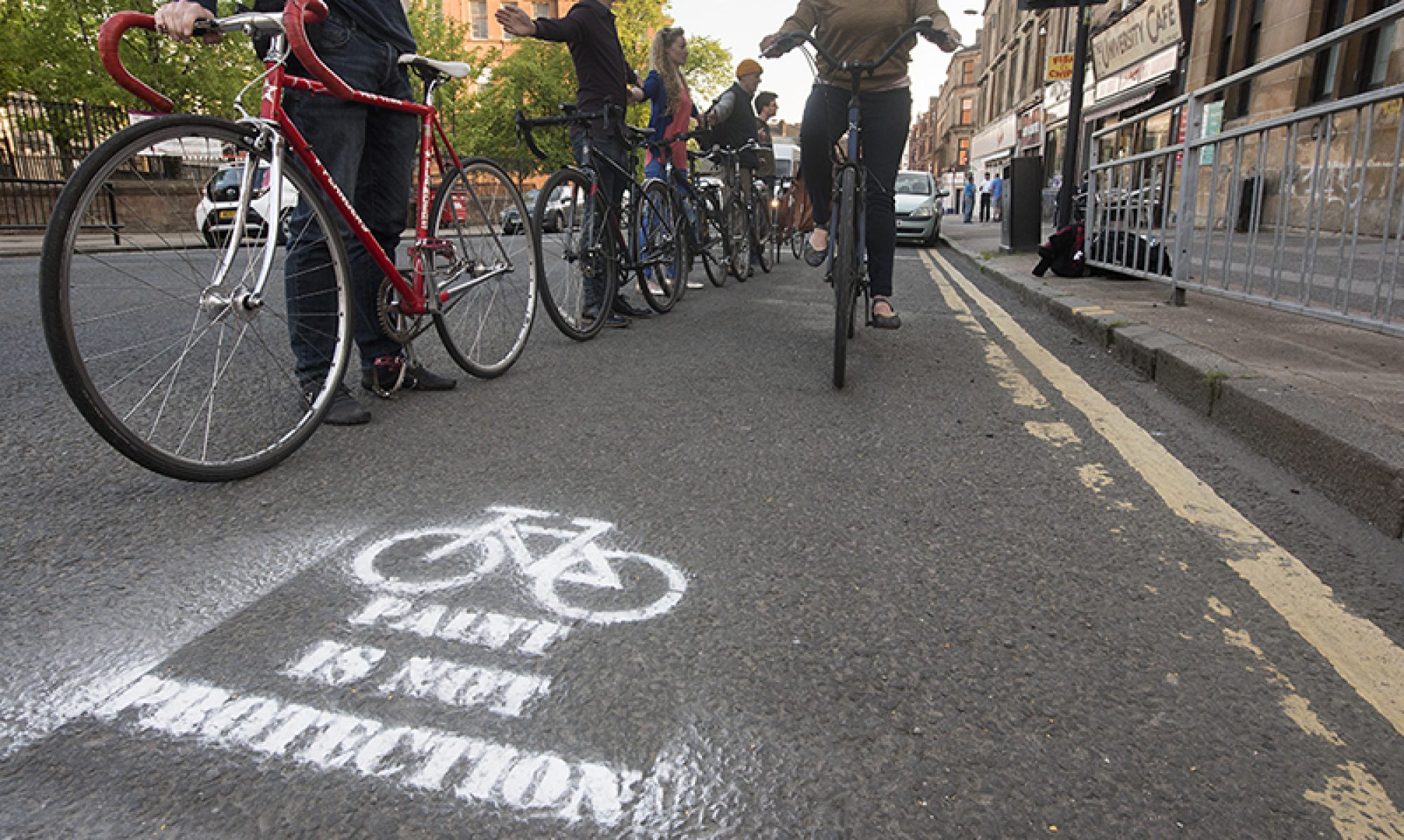GoBike was invited to attend the recent Transport Summit held by Glasgow City Council, and was represented there by 3 committee members, John Donnelly, Peter Hayman and Alasdair Macdonald. Here is Alasdair’s report of the proceedings:
This summit was organised by Glasgow City Council and was chaired by Councillor Anna Richardson, Convenor for Sustainability and Carbon Reduction, assisted by the Director for Roads.
There were presentations by Council officers, Transport Scotland, representatives of the bus and rail industries, an academic, charities/campaigning groups Sustrans and Transform Scotland and Glasgow Chamber of Commerce.
In the audience there were campaigning groups like GoBike! and Get Glasgow Moving, representatives from a number of Community Councils and representatives
from the haulage industry as well as Councillors representing Greens, Labour and
SNP.
The keynote speaker was Iain Docherty BSc PhD CMILT who is Professor of Public Policy and Governance and Head of Management at the University of Glasgow Adam Smith Business School. His presentation set the tone for the remainder of the proceedings. Although he was careful to ensure that his speech was academically rigorous and carefully qualified, he was pretty explicit that dealing with issues relating to private cars and parking is the major factor in improving transport in Glasgow. This was echoed by most of the subsequent speakers, with no-one making a counterargument.
There was widespread agreement in the room that something needs to be done about cars in Glasgow. It was only the 2 Glasgow City Council Officials who said “This was not about penalising car drivers”. Almost every other speaker highlighted that the only way to improve transport in Glasgow involved making changes that would reduce the number of cars in Glasgow.
I had not heard people in positions of influence being so unequivocal and so explicit. A memorable, line, slightly tongue-in-cheek was that with white paint to repartition road space and amendments to traffic light crossing times, Glasgow could make a significant improvement relatively quickly!
However, while that might be a way forward, it is an intensely POLITICAL thing and therefore those of us who wish to bring about change must be supportive of politicians in creating the ethos in which such changes can take place. The motoring organisations will not take this lying down. While it is important that campaigners push for good infrastructure constructed to good standards, we also need to work constructively and co-operatively with elected members and officers to bring about the change.
Compared to ‘peer cities’ in Europe, such as Malmo and Bremen, levels of cycling in Glasgow are very low, but rising, and the number of car journeys is INCREASING. So, we have to get people out of cars and on to their feet, on to bicycles and on to trains and buses. The importance of buses cannot be overstated. They account for more than twice the journeys compared to all other modes. While there are improvements to rail services underway and advocacy for an extended Subway, in the short and intermediate term, it is buses that will carry most of the people who are ‘persuaded’ to leave their cars.
A related point was the fact that organisations like the bus industry and the Chambers of Commerce, feel we need no more NEW road building, but that we would be better improving (and repartitioning?) the road network that we currently have.
The issues relating to buses are about emissions, about the lack of services across the city rather than through the city, single-ticketing using modern technology. SPT indicated that the transfer-ticketing issue is likely to be solved soon. Retrofitting of buses to the highest EU standard for emissions is feasible with current technology, but the question is, ‘Who pays?” Recent amendments to Union/Jamaica St appear to have speeded transition of buses through that route. Nevertheless, there is still work to be done.
Improvements to Queen Street Station and electrification of Glasgow/Edinburgh should improve things, but, at present, there are no plans for Crossrail.
The Chamber of Commerce made a strong case for developing Glasgow Airport as an economic generator. Renfrewshire Council’s City Deal is focussed on the Airport, but from a cycling and walking perspective, there are substantial benefits associated with it.
It was a pretty well-informed meeting. We were provided with a lot of information. But, to the credit of the presenters, I think they were pretty succinct. There was also a fair degree of coherence amongst the presentations, despite them coming from quite a wide range of sources. There were a number of opportunities for discussion and almost all the contributions were from community councils and campaigning bodies. The standard of debate was high and courteous.
I give the Council high marks for organising this event. it was heavily led by the transport professionals, but I think they were respectful of their audience. I think we need a follow up meeting where the audience represents ALL the community councils, and the various community organisations and campaigners like GoBike!
Bill Fraser (a GoBike! member, community council chair and member of a local ‘hertage’ group) has some interesting ideas about community innovation using organisations which are NOT the community council but are closely related to them (for legal reasons). Bill could give a good presentation to the target audience I have indicated.

